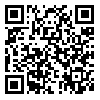Volume 12 - Articles-1401
MEJDS (2022) 12: 21 |
Back to browse issues page
Download citation:
BibTeX | RIS | EndNote | Medlars | ProCite | Reference Manager | RefWorks
Send citation to:



BibTeX | RIS | EndNote | Medlars | ProCite | Reference Manager | RefWorks
Send citation to:
Mirzaei R, Naziri G, Mohammadi M, Fath N. Investigating the Effectiveness of Choice Theory Training in Increasing Self-Control of HIV-Positive Prisoners. MEJDS 2022; 12 :21-21
URL: http://jdisabilstud.org/article-1-2754-en.html
URL: http://jdisabilstud.org/article-1-2754-en.html
1- Department of psychology, Shiraz branch, Islamic Azad University
Abstract: (464 Views)
Background & Objectives: With recent advances in clinical trials and new drug therapies for HIV–positive patients, their survival has increased, so researchers and health care providers are seriously looking to raise their quality of life. One of the psychological factors in which HIV–positive patients show weakness is self–control. It is described as a delay in satisfaction and practically a person waits for a more valuable but later outcome. Lack of self–control is associated with the concept of impulsivity and indicates an inability to think about the consequences of behavior. Training based on choice theory teaches us that we can control our life and helps the people escape from being controlled by the outside world. It teaches them that all control must be exercised from within. This treatment makes people responsible; therefore, the primary purpose of this study was to investigate the effectiveness of group training program of choice theory concepts on self–control in HIV–positive prisoners.
Methods: The present research method was quasi–experimental with a pretest–posttest design with a control group. The study’s statistical population consisted of all HIV–positive prisoners in Shiraz Central Prison, and the study was conducted from October 2020 to March 2021. Among the prisoners, 30 HIV–positive volunteers were selected by the available sampling method according to the inclusion and exclusion criteria and were randomly and equally assigned to the experimental and control groups. The inclusion criteria were as follows: having an IQ above average, lacking severe mental disorders diagnosed by a psychologist through evaluation and clinical interview, being HIV–positive, having a minimum of junior high school education, being 18 years or older, passing a minimum period of six months in prison, lacking physical problems refraining them from participating in training sessions. Subjects were assessed with the Self–Control Questionnaire (Grasmick et al., 1993) in the pretest and posttest. Then, the experimental group received nine 90–min sessions of group training on choice theory concepts based on Glasser's guide (2012), while the control group received no training. Descriptive statistics (mean and standard deviation) and inferential statistics (univariate analysis of covariance) were used to analyze the data in SPSS software version 25. All data were analyzed at a significance level of 0.05.
Results: The results showed that after removing the pretest effect, there was a significant difference between the experimental group and the control group in the posttest regarding the mean scores of self–control in HIV–positive prisoners (p<0.001). The effect of group training of choice theory on increasing self–control was 0.428.
Conclusion: Based on the research findings, group training on the concepts of choice theory promotes self–control of HIV–positive prisoners. Therefore, this treatment is recommended to experts in this field.
Methods: The present research method was quasi–experimental with a pretest–posttest design with a control group. The study’s statistical population consisted of all HIV–positive prisoners in Shiraz Central Prison, and the study was conducted from October 2020 to March 2021. Among the prisoners, 30 HIV–positive volunteers were selected by the available sampling method according to the inclusion and exclusion criteria and were randomly and equally assigned to the experimental and control groups. The inclusion criteria were as follows: having an IQ above average, lacking severe mental disorders diagnosed by a psychologist through evaluation and clinical interview, being HIV–positive, having a minimum of junior high school education, being 18 years or older, passing a minimum period of six months in prison, lacking physical problems refraining them from participating in training sessions. Subjects were assessed with the Self–Control Questionnaire (Grasmick et al., 1993) in the pretest and posttest. Then, the experimental group received nine 90–min sessions of group training on choice theory concepts based on Glasser's guide (2012), while the control group received no training. Descriptive statistics (mean and standard deviation) and inferential statistics (univariate analysis of covariance) were used to analyze the data in SPSS software version 25. All data were analyzed at a significance level of 0.05.
Results: The results showed that after removing the pretest effect, there was a significant difference between the experimental group and the control group in the posttest regarding the mean scores of self–control in HIV–positive prisoners (p<0.001). The effect of group training of choice theory on increasing self–control was 0.428.
Conclusion: Based on the research findings, group training on the concepts of choice theory promotes self–control of HIV–positive prisoners. Therefore, this treatment is recommended to experts in this field.
Type of Study: Original Research Article |
Subject:
Rehabilitation
Send email to the article author
| Rights and permissions | |
 |
This work is licensed under a Creative Commons Attribution-NonCommercial 4.0 International License. |




